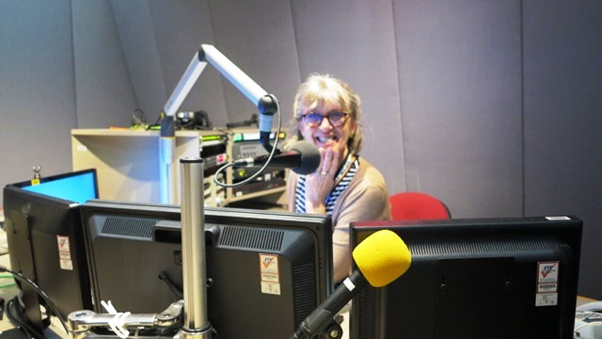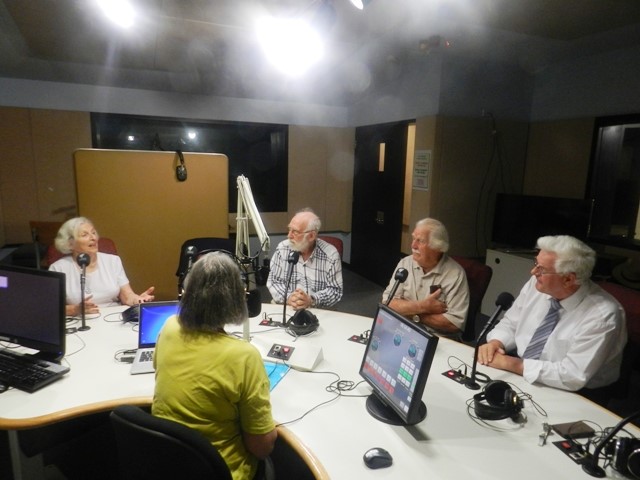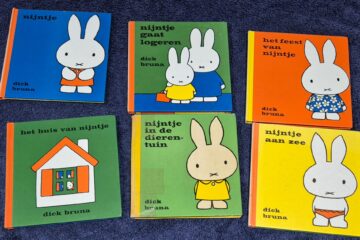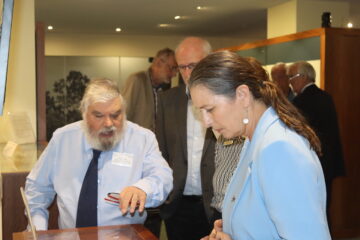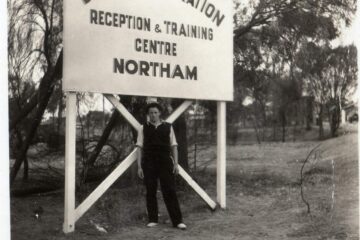This follows: SBS Dutch Radio – Early Days History by Theo ten Brummelaar
By Anneke Boudewijn
It’s hard to compare SBS Radio today with radio 2EA of the early 1980’s. I joined in 1984, among the first to take Theo’s written language, news and audio test. “Without preparation: Choose a subject from this list and just talk for a minute. Not more, not less, use the clock in the studio as a guide.” Talk about me being put on the spot!
l replaced Joop Kreeveld who hosted a hugely popular music program. The emphasis was to be on more information and talk. “Don’t make the migrants homesick, engage them about their lives here instead.”
In 2018 SBS Radio donated 20.000 of those vinyls from Sydney and Melbourne to the National film and Sound Archive (NFSA).
It is easy to forget that in those days we did not have the internet, Facetime or WhatsApp to stay in touch with friends and family in the Netherlands. Overseas telephone calls were extremely expensive and news from Radio Netherlands arrived as a telex just before the program went to air.
Initially we visited all the Dutch clubs as often as we could and reported on events taking place. It was a very Sydney centric view of the world. Radio 3EA, our sister station in Melbourne could have been on another planet for all we knew.
In the second half the 1980s changes were in the air and well-known talkback broadcaster Owen Delaney from radio 2GB was engaged to teach all language presenters the secrets of talkback. For me it led to working for him as a producer for two years at Radio 2GB.
Personal circumstances caused me to return to Europe in 1990 for one year but in 1994, SBS Radio was restructuring and recruiting again. For me, another opportunity. I sat the language and translating exam again as well as another Dutch audio test.
Mathilde Swift had already worked for a couple of years as a freelancer and it is testament to the increasing awareness of SBS Radio and her ability, that she was able to interview Archbishop Tutu when he came to Australia. His media team would only allow two interviews: ABC and SBS Radio.
In those days, the SBS radio newsroom did not do any current affairs stories, only hard news. Matilde was asked to represent SBS Radio, joining ABC journalist Peter Cave on a Sunday morning at Archbishop Tutu’s hotel in the Rocks.
Mathilde was delighted to be appointed Head of the Dutch group as a full-time broadcaster after the restructuring in 1994 and I re-joined the program as part-time journalist. It was a wonderful way for me to stay in touch with my language and culture. Mia van Loo and Emily Werlemann became freelancers to provided extra material and interviews.
SBS Radio management in the nineties wanted even more focus on news. In those days SBS TV did not share any stories with radio either, hard to understand now, but it did provide the presenters and journalists with new opportunities.
I joined a special division set up within SBS Radio to produce and record stories in English for other languages to use and translate.
Upskilling all language journalists and presenters became the next focus for management. The University of Wollongong provided communication lectures and exams that were adapted to the needs of the more than sixty different language groups. Technical training, with a view to self-operation followed as financial constraint forced SBS Radio to reduce personnel costs. As years went by, the Federal government pulled the purse strings ever tighter. Eventually the four-yearly national census became the ultimate measure by which programs would lose or gain hours, forcing the amalgamation of the language groups in Sydney and Melbourne.
The year 2000 was an exciting time for the Dutch program. The Olympics and Paralympics provided Mathilde with many wonderful opportunities to interview Dutch sports heroes like Pieter van den Hoogenband and Inge de Bruin- at the Heineken Huis in Darling Harbour, as well as a very enthusiastic (then still crown prince) Willem Alexander, who joined the festivities.
In 2002 SBS Radio sent Mathilde to a two-day conference at Curtin University in Perth. The subject was Human Rights and the media. Well known author and media personality John Pilger was one of the speakers but for the Dutch program it was the Maluku Island representatives who were more important.
Towards the end of 2005 Radio Netherlands invited Mathilde to participate in a series of co-productions to celebrate 400 years bilateral relations (in 2006) between the Netherlands and Australia. Radio Netherlands sent a Dutch colleague to Sydney on exchange to produce Australian material on the same subjects.
It resulted in a series that mirrored experiences seen from opposite sides of the world about mixed marriages as well as education and older migrants. Early in 2006 the then Dutch Prime Minister Balkenende visited Australia
.
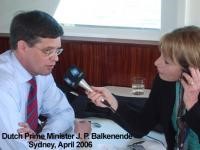
He did not shy away from controversial subjects. Later that year a Dutch Parliamentary delegation visited and they were treated to a Harbour cruise, no escaping the Dutch program there! Dutch politicians came and went over the years including PM Rutte whom I interviewed in Canberra about the double nationality question, an issue that remains controversial and high on the agenda today.
IN 2005, in conjunction with Dutch Consul-General Margriet Bot, we organised a painting competition to celebrate the Silver Jubilee of Queen Beatrix. The Consulate exhibited the paintings and drawings at the party venue for the Queen’s Birthday celebration and the public was able to nominate their favourite. The entries came from all over Australia.
In 2008 SBS Radio merged Melbourne and Sydney, Mathilde retired, and we went national. Two programs a week now came from Melbourne and two from Sydney. Yvonne Davis became Executive producer until I took over that role in 2011 and eventually in 2017, Jopie Witzand from the Melbourne team replaced me.
Every change of management brought new challenges and ideas as we moved more to a news and information format with even less music. Publishing podcasts on the SBS radio website and later publishing stories on Facebook SBS Dutch in English and Dutch became part of our duties. The media landscape was changing fast and taking photos or filming the event became as important as the podcast itself.
Filming events added a whole new perspective to my job. I visited Broome (WA) for the commemoration of the Japanese attack on Broome.
https://www.sbs.com.au/language/english/audio/75-years-ago-japan-attacked-broome
Regular exhibitions, museums, Dutch festivals, writers and bicycle events in Sydney all took time but made the job interesting.
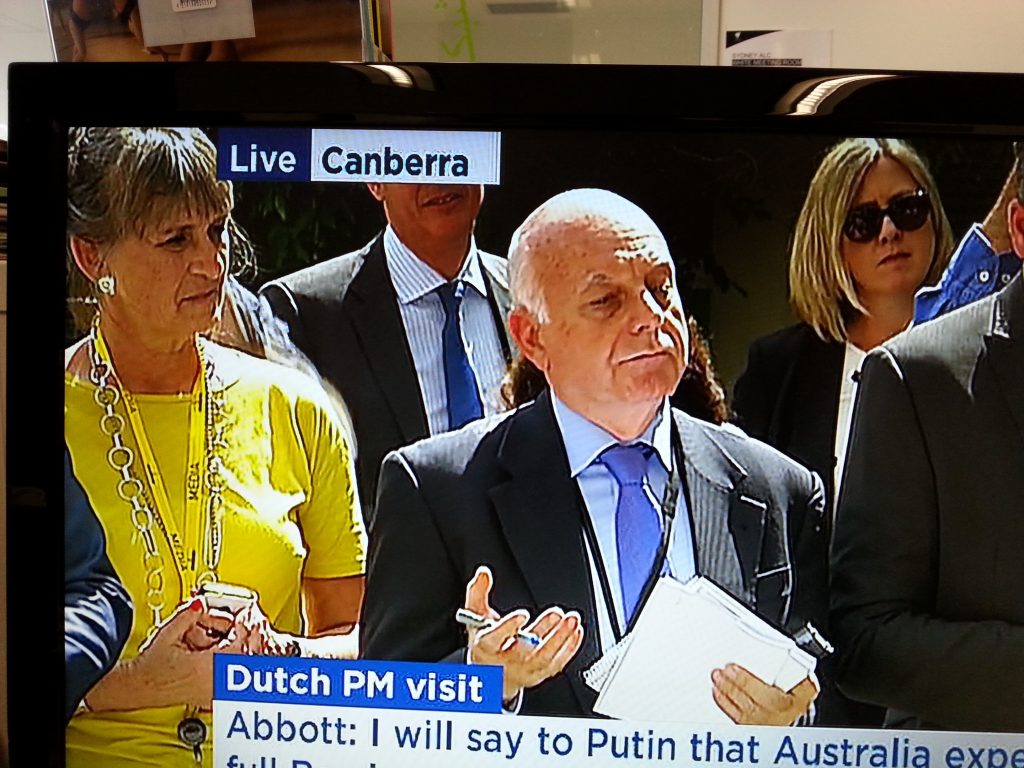
Canberra featured regularly on my agenda too. There was never a dull moment!
The program allowed us to talk and meet so many interesting people over the years: Japanese comfort woman Jan Ruff-O’Hearne, politician Ayaan Hirsi Ali, as well as many writers: Tessa de Loo, Arnon Grunberg, Jan Brokken and Peter FitzSimons author of the Batavia story to name a few. Princess Laurentien came to read from her book about a child who always asks “why” and Andre Rieu came to the studio with his own camera crew and security team!
The FIFA Euro Cup Soccer in 2014 kept us all up to all hours of the mornings.
University professors of Dutch origin and experts like communications analyst Paul Budde who had made Australia home, were always ready to provide background information to the Australian news. International analysts from the Dutch Thinktank Clingendael gave regular insights into world affairs.
When in 2014 the MH17 was shot down over Ukraine we had our own Dutch correspondent on the spot: Joost Bosman who was also asked by the Dutch authorities investigating what he saw and heard in the days immediately following the crash. He also provided SBS TV with material.
Newspaper editor Marten de Jongh became our correspondent in the Netherlands for more than 10 years he gave us an insider view of problems the Netherlands twice a week
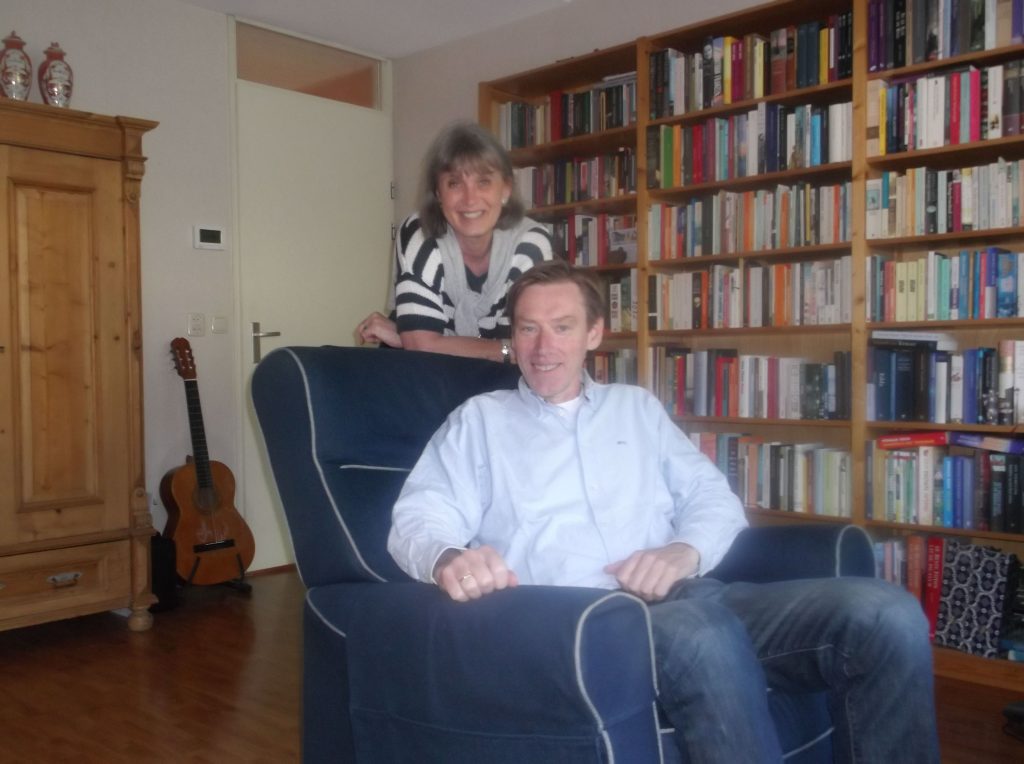
In the segment “In the hot Seat” I talked to people all over Australia. Like so many Dutch clubs from the 1960’s, the Dutch Club Neerlandia in WA needed fresh ideas, new blood and energy to have a future. Lianna Parker, President of the Club confronted a problem head-on and carried out a professional survey.
Dutch and Indonesian volunteers for the Dutch Airforce came to Australia to be trained by the RAAF in Casino. Historian Edith van Loo, who spoke to some of the surviving veterans, told the program how the boys became known as the Casino Boys. Holocaust survivor Marianne van der Poorten and her husband came to Australia in 1951. Her story was one of perseverance, a positive attitude and some luck.
https://www.sbs.com.au/language/english/audio/in-the-hot-seat-marianne-van-der-poorten
Builder and designer Joey Ruigrok van der Werven was inspired by the story of the windmills that used to be part of the landscape of the Rocks. Joey also loves inventing and fireworks… an explosive combination!
https://www.sbs.com.au/language/english/audio/the-hotseat-designer-joey-ruigrok-van-der-werven
The statistics are shocking: 20.000 mariners committed suicide during the last few years. Captain Kasper Kuiper, who was also the Hon. Consul in Queensland talked about the changed way of life on board of these big vessels.
https://www.sbs.com.au/language/english/audio/in-the-hot-seat-captain-kasper-kuiper
A Dutch art segment (In the footsteps of Dutch painters) with Art Gallery of NSW Curator Hendrik Kolenberg who came to Australia as a two-year-old and speaks a most delightful Dutch. He thought that Dutch painter Theo Kuipers deserved an Australian passport!
https://www.sbs.com.au/language/english/audio/theo-kuipers-exhibition-sydney-free-style
A cooking segment with restaurant owner Geert Elzinga (Postcard from Geert’s KItchen) gave the program a lighter touch. His almost 80 Dutch recipes were always in Dutch but when SBS TV started a cooking site we recorded a separate one in English. The English version can still be found on the SBS FOOD site.
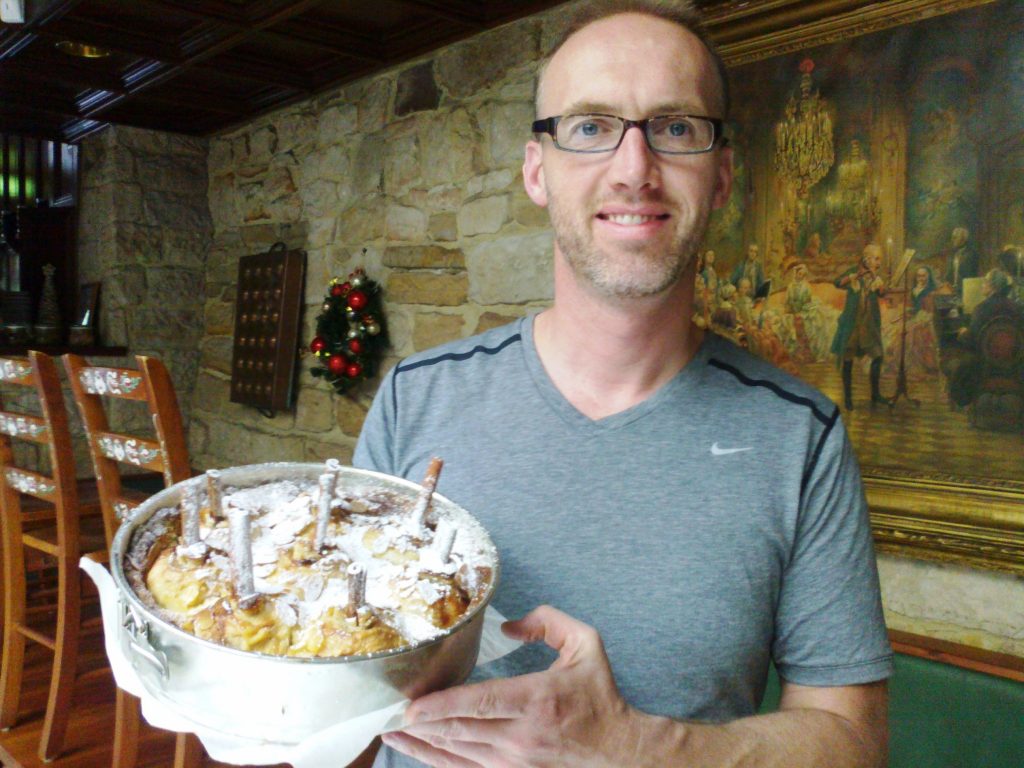
Over time we may have been reduced to one full time broadcaster but the emphasis on the stories of the Dutch in Australia remained its prime focus. As Mathilde once said: “it’s the stories of the Dutch migrants that have the power to not only make us think and surprise us but move us too.”
Some of the podcasts before 2014 may have been taken down to make room for new ones, many can still be found online.
Cooperation between SBS TV and SBS Radio improved over time, and I occasionally helped with translations and sourcing talent in the Netherlands. When SBS Movies lost their regular Dutch subtitler I was approached. It involved another exam, the NAATI standard for translating as well as training to subtitle. This again provided different material for the program.
From four programmes a week from two major cities to two National programs on Wednesday and Saturday. We can be heard all over the world via Spotify, Apple, and Google podcasts as well as SBS Radio2, on your computer or your television.
https://www.sbs.com.au/language/english/audio/first-generation-stories-from-zaandam-to-australia
https://www.sbs.com.au/language/english/audio/1st-generation-story-richard-kuipers-part-1
https://www.sbs.com.au/language/english/audio/1st-generation-story-richard-kuipers-part-2
https://www.sbs.com.au/language/english/audio/first-generation-stories-riet-schuurmans-part-1
https://www.sbs.com.au/language/english/audio/first-generation-stories-riet-schuurmans-part-1
https://www.sbs.com.au/language/english/audio/first-generation-stories-cees-koeman
https://www.sbs.com.au/radio/article/2015/06/26/man-behind-masks-artist-peter-schipperheyn
By Anneke Boudewijn
Addendum
In 2017 Anneke retired and Jopie Wtzand took over. Jopie had been working for SBS Radio since 1995. However, as her ovarian cancer progressed she had to retire first in 2013 and finally permanently in 2018 when Paulien Roessink took over the reigns. In December 2022, Jopie Witzand passed away after an heroic battle with her cancer. SBS Radio commemorating Jopie.
